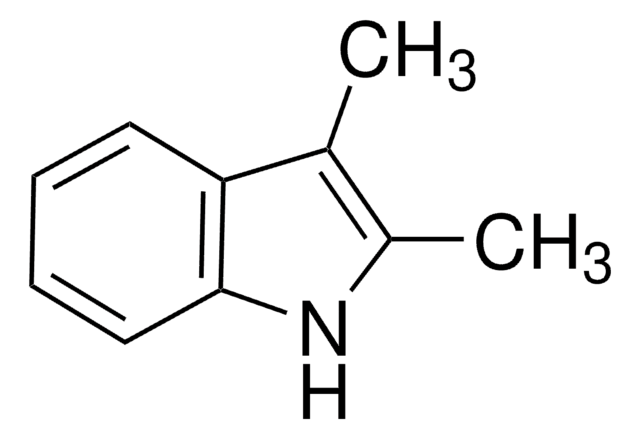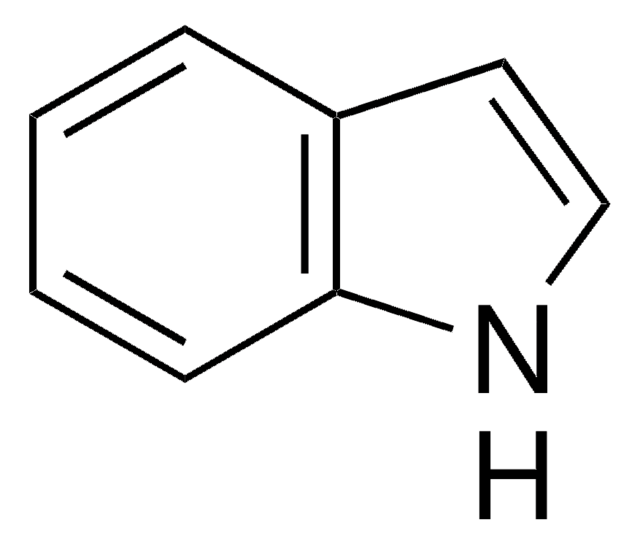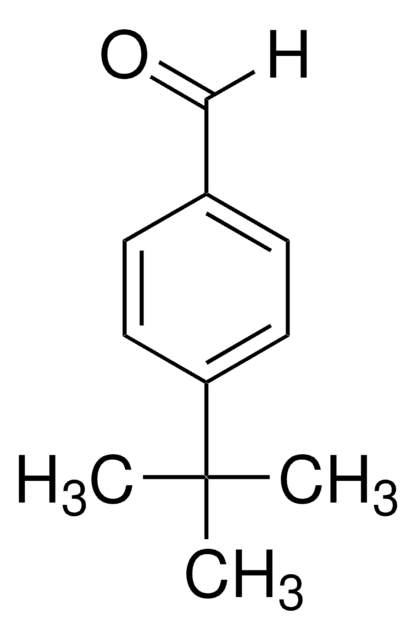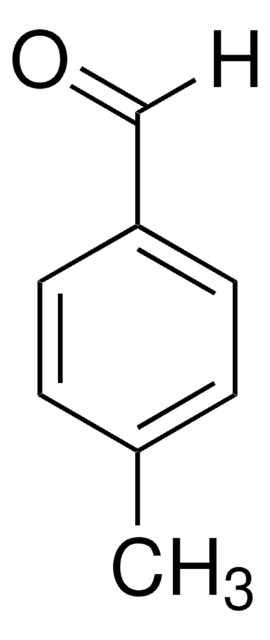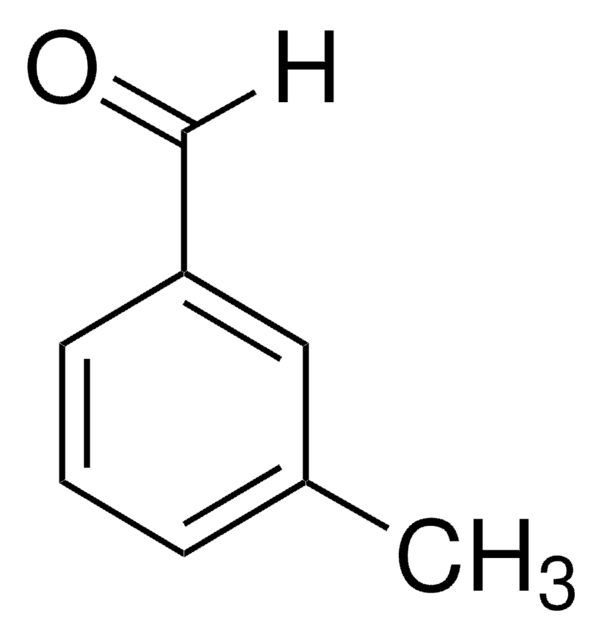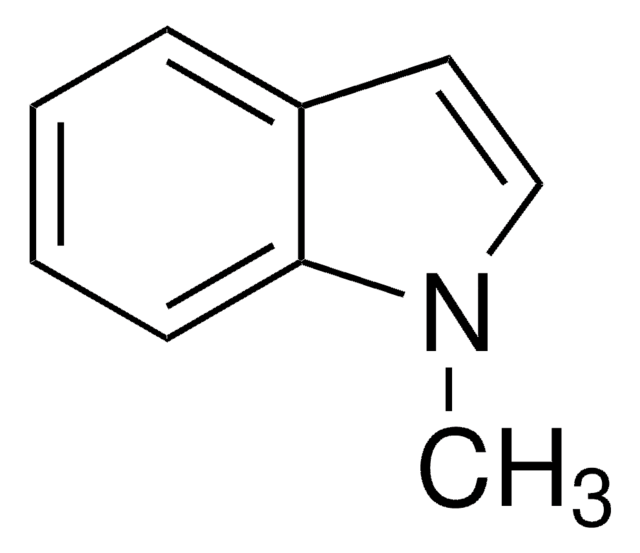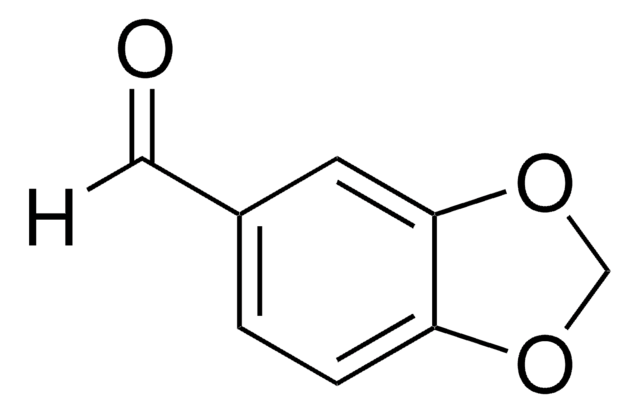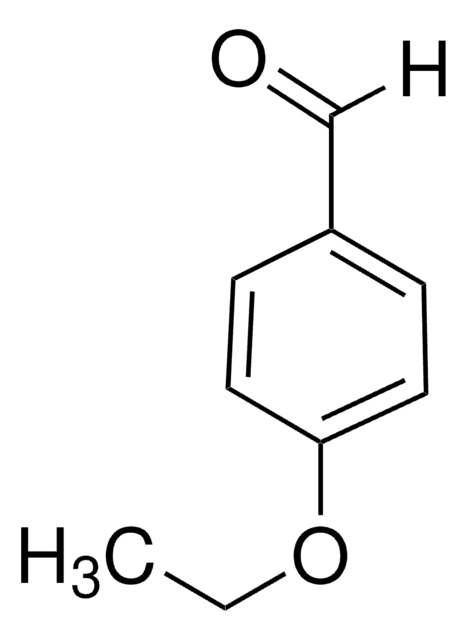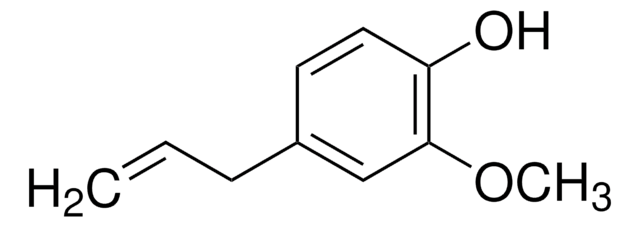135178
Cuminaldehyde
98%
Synonym(s):
4-Isopropylbenzaldehyde
About This Item
Recommended Products
Quality Level
Assay
98%
form
liquid
refractive index
n20/D 1.529 (lit.)
bp
235-236 °C (lit.)
solubility
H2O: insoluble
alcohol: soluble
diethyl ether: soluble
density
0.981 g/mL at 20 °C
0.977 g/mL at 25 °C (lit.)
functional group
aldehyde
SMILES string
[H]C(=O)c1ccc(cc1)C(C)C
InChI
1S/C10H12O/c1-8(2)10-5-3-9(7-11)4-6-10/h3-8H,1-2H3
InChI key
WTWBUQJHJGUZCY-UHFFFAOYSA-N
Looking for similar products? Visit Product Comparison Guide
Application
Biochem/physiol Actions
Signal Word
Warning
Hazard Statements
Precautionary Statements
Hazard Classifications
Acute Tox. 4 Oral
Storage Class Code
10 - Combustible liquids
WGK
WGK 2
Flash Point(F)
199.4 °F
Flash Point(C)
93 °C
Personal Protective Equipment
Regulatory Listings
Regulatory Listings are mainly provided for chemical products. Only limited information can be provided here for non-chemical products. No entry means none of the components are listed. It is the user’s obligation to ensure the safe and legal use of the product.
FSL
Group 4: Flammable liquids
Type 3 petroleums
Hazardous rank III
Water insoluble liquid
ISHL Indicated Name
Substances Subject to be Indicated Names
ISHL Notified Names
Substances Subject to be Notified Names
JAN Code
135178-100G:
135178-500G:
135178-5G:
135178-VAR:
135178-BULK:
Choose from one of the most recent versions:
Certificates of Analysis (COA)
Don't see the Right Version?
If you require a particular version, you can look up a specific certificate by the Lot or Batch number.
Already Own This Product?
Find documentation for the products that you have recently purchased in the Document Library.
Customers Also Viewed
Our team of scientists has experience in all areas of research including Life Science, Material Science, Chemical Synthesis, Chromatography, Analytical and many others.
Contact Technical Service